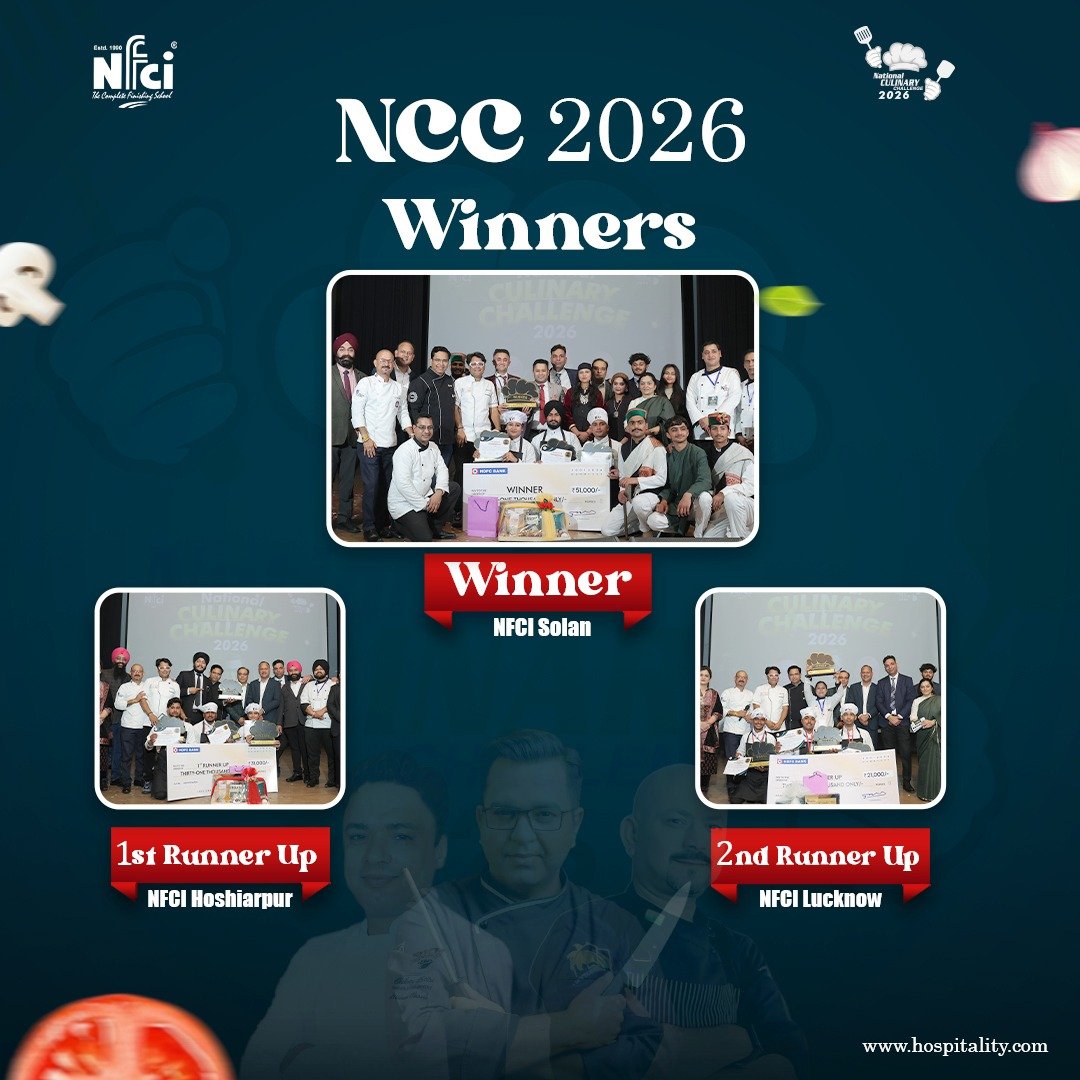
Certificate vs. Degree vs. Diploma Courses: What’s the Difference?
Certificate vs. Degree vs. Diploma Courses: What’s the Difference? Choose the Right Course for You!
Are you confused about choosing between a diploma Courses, vocational course, or degree after 12th? Wondering if a diploma course from an institute like the National Finishing and Cookery Institute (NFCI) is better than a degree, or if a vocational course is the best way to start earning quickly?
This blog breaks down the differences between certificate, diploma, vocational, and degree courses to help you make an informed decision. Whether you’re from any part of India, this guide will help you choose the right educational path for your career goals!
Understanding the Basics: Degree, Vocational, and Diploma Courses at NFCI and Beyond

Each educational pathway—certificate, diploma, vocational, and degree—offers unique benefits depending on your aspirations, budget, and location. Here’s a quick overview:
– Certificate Courses: Short-term programs (a few weeks to months) focusing on specific skills, such as digital marketing, graphic design, or culinary arts at NFCI Institute. These are ideal for quick up skilling or enhancing your resume.
– Diploma Courses: Practical, skill-based programs lasting 1–2 years, offered by institutes like NFCI in fields like hotel management, culinary arts, bakery skills or front desk executive. These are popular in cities like Pune and Chennai for their job-oriented approach.[](https://www.shiksha.com/college/national-finishing-and-cookery-institute-jalandhar-63353)
– Vocational Courses: Hands-on training for trades or technical professions, such as food and beverage service or hospitality management at NFCI. These are perfect for students in industrial hub aiming for immediate employment in every part of the world.
– Degree Courses: Comprehensive, theory-based programs (3–4 years, like B.Tech, B.Com, or B.Sc) offered by several universities. Degrees provide broader education and open doors to advanced career paths.
Key Differences: Diploma/Vocational vs. Degree Courses at NFCI and Other Institutes
Here’s a clear comparison to help you decide between diploma/vocational courses (like those at NFCI) and degree programs:
| Feature | Diploma/Vocational ( NFCI) | Degree
| Focus | Practical, hands-on, skill-based | Theoretical, comprehensive
| Duration | Shorter (6 months–2 years) | Longer (3–4 years)
| Career Goals | Entry-level jobs, specific roles | Wider opportunities, leadership roles
| Cost | Less expensive | More expensive (₹2 lakh–₹10 lakh or more)
| Transferability | Limited (industry-specific) | High (globally accepted for further studies)
| Eligibility | 10th or 12th pass |12th pass with higher academic requirements
Note:NFCI fees range from ₹18,000 to ₹1,45,900, depending on the course. The course fees can be varied prefer to call at +91-98880-11222 for more information.
Which Course Should You Choose After 12th at NFCI?
Your choice between a certificate, diploma courses, vocational course, or degree depends on your goals, budget, and location. Here’s a guide for students across India.
- Choose a Diploma Course or Vocational Course at NFCI If:
– You want to start earning quickly: NFCI offers diplomas and vocational courses like Diploma in Hotel Management or Certificate in Food and Beverage Service, designed for immediate job readiness. For example, NFCI provides training such as that leads to jobs in top hotels like Radisson or Taj.
– Budget is a concern: Diplomas at NFCI are affordable, with fees as EMI Instalments for certificate courses, making them accessible for students.
– You prefer practical learning: If you’re interested in culinary arts or hospitality, NFCI’s hands-on programs, such as Diploma in Bakery, equip you with skills employers value.
Examples of Popular NFCI Courses:
– Diploma in Cookery + Commis Chef Program (offered at NFCI with NFCI+ NSDC Affiliations)
– Certificate in Indian and Tandoori Cuisine
– Vocational Training in Food Production
- Choose a Degree If:
– You aim for long-term career growth: Degrees prepare you for leadership roles or advanced studies like MBA.
– You want flexibility: A degree offers broader career options and is globally recognized, ideal for students in Hyderabad or Pune aiming for international opportunities.
– You’re interested in specialized fields: Degrees in medicine, law, or engineering require in-depth theoretical knowledge, offered by top institutes in India.
– Examples of Popular Degrees:
– B.Sc in Data Science (trending in Hyderabad)
– B.Com (offered by Delhi University and colleges in Kolkata)
– B.Tech in AI (popular at VIT Vellore)
- Choose a Certificate If:
– You need quick up skilling: Certificate courses like Food and Beverage Service, Diploma in Culinary Skills, Commis Chef Program at NFCI, to enhance your resume in 3–6 months.
– You’re exploring a new field: Certificates allow you to test fields like culinary arts or graphic design before committing to a longer program.
Why Choose a Diploma Courses or Vocational Course at NFCI Over a Degree?
While degrees are prestigious, diploma and vocational courses at NFCI offer distinct advantages, especially for students in India looking to enter the workforce quickly:
- Faster Entry to the Job Market: NFCI’s programs, such as Diploma in Hotel Management or Certificate in Bakery, prepare you for roles like chef, housekeeping supervisor, or F&B steward in 6 months to 2 years. Graduates have secured jobs at Radisson Blu Goa, & Taj
- Cost-Effective: NFCI’s courses are affordable for students in Tier-2 cities like in Punjab and Haryana.
- High Demand in Local Industries: For example, NFCI offers courses tailored to the hospitality boom in Himachal Pradesh, while NFCI caters to the city’s growing culinary scene.
- Flexibility to Upgrade: Many NFCI diploma holders in metro cities pursue lateral entry into degree programs, combining practical skills with advanced education.
Final Thoughts: Which Path Is Right for You?
Choosing between a certificate, diploma courses, vocational course, or degree depends on your goals, budget, and location. If you want to start earning quickly, a diploma or vocational course at NFCI—like Diploma in Culinary Arts or Certificate in Food Production—is a great choice. For long-term growth, a degree from universities like IISc Bangalore or Delhi University is ideal. For quick skill upgrades, consider certificate courses at NFCI or other online platforms like Coursera.

Ready to take the next step? Explore NFCI’s offerings certificate, diploma courses that will help you to have add on skill to make your resume stand out! To know more call us at +91-9888011222 or visit their website for details.





